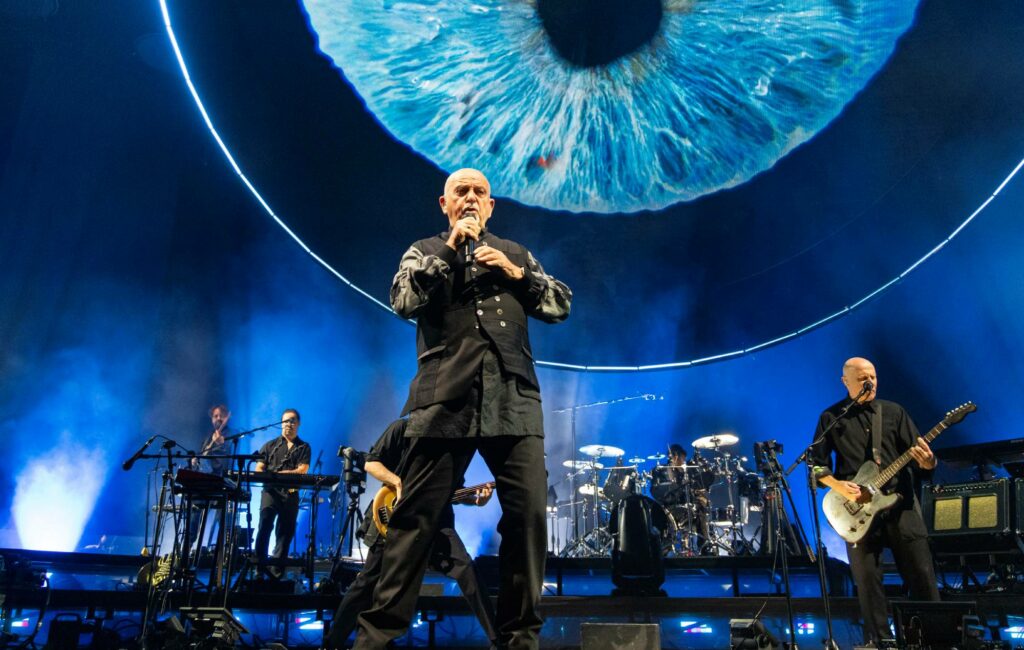Peter Gabriel, ‘i/o’ review: A return well worth waiting for
On his first album in 21 years, Peter Gabriel continues to be a future-facing trailblazer.

From theatrical prog showman to incisive solo star, world music pioneer, art-rock heartthrob and globe-hugging futurist, the evolution of Peter Gabriel over 50 years has made him something of
a post-prog Bowie. This century, in wizard beard and sci-fi tunic, he’s come to encapsulate in sound and mindset the organic mysticism of seemingly magical new technologies.
His last album of new material, 2002’s Up, couched fundamental human experience — birth, death, fear, grief, tragedy — in the signal- and-noise textures of the technological age, while foreseeing society’s moral demise in its Jerry Springer pop pastiche ‘The Barry Williams Show’. This follow-up, begun alongside Up back in 1995 but repeatedly reworked and delayed until over 20 years separated them, initially seemed an updated continuation piece. Released track by track every full moon for maximum ancient/modern mystique, i/o’s first run of singles advanced Up’s dark industrial art rock with a rich, imposing ambience courtesy of Brian Eno, without sacrificing the earthy, Afrobeat funk that has provided the tonal backbone of Gabriel’s music since 1980’s seminal third self-titled album.
Thematically, i/o strode forth into the socio- political future-present. ‘Panopticom’ envisions an AI-enabled world in which surveillance culture is turned back upon the watchers via satellites, the idea propelling Gabriel from oppressive ‘Digging in the Dirt’ verses to an energised chorus recalling his 1977 solo debut.
‘The Court’ mechanises the ancient tribal rhythms of 1982’s fourth album (aka Security) and adds a haunting choir of judgement to a song pondering the warped justice of cancel culture.
‘Four Kinds of Horses’ — all Depeche Mode atmospherics, spirit choirs and yearning diodes played by Eno on “electric worms” — sensitively dissects the tragic naivety of religious faith corrupted into terrorism. And later the soul pop ‘Olive Tree’ imagines a future where a headset can turn our thoughts into pictures, the song’s protagonist using it to connect from afar with his favourite tree.
Tucked among the album’s first half, though, is a hint of deeper, slow-pulsing concerns. ‘Playing for Time’ is a sublime piano ballad lightly brushed with Randy Newman jazz chords and swept and lifted by the New Blood Orchestra, facing down death with a resigned nobility. As the album progresses, mortality, grief and the final search for peace come to dominate. Austere piano lament ‘So Much’ desolately details the inevitable decay of our limited-edition bodies. ‘And Still’ is a tribute to Gabriel’s recently departed mother, meandering through grief’s empty, yet cluttered house (“your presence everywhere”) with weaving stylistic variety.
If such moments can drag i/o towards despondence, there’s brightness too. A coma patient comes round in a blast of jubilant electro-funk on ‘Road to Joy’, Gabriel’s best pure pop moment since ‘Sledgehammer’. The strident arena pop title track (‘i/o’ standing for input/output) celebrates the ever-flowing interconnectivity of man and planet from the ideas on our feeds to the insects in our graves. And ‘Live and Let Live’ closes the album wishing for a global self-forgiveness that might see us “lay the weapons down”. Gabriel’s panoptic vision of the modern world is a cautionary and fatalistic one but, as ever, he makes us want to live deep, deep inside it.
